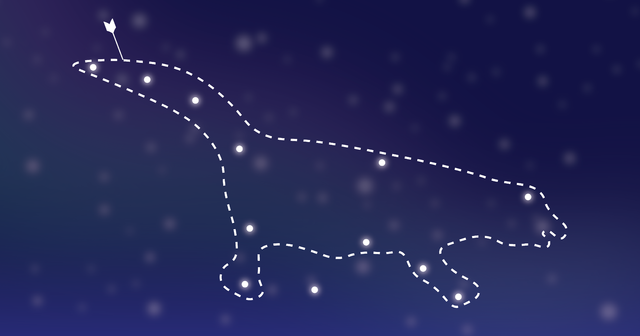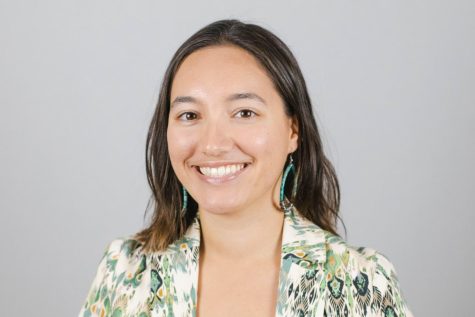Professor Aimee Cree Dunn has developed a variety of Indigenous environmental studies classes including “Awesiinh: Wild Animal Relations,” “Indigenous Environmental Movements,” and “Kinomaage: The Earth Shows Us the Way” since she started teaching at the Center for Native American Studies in 2005.
For the first time this year, she is teaching a new course, “Indigenous Star Knowledge.” The course will “emphasize Anishinaabe star knowledge, decolonizing our understanding of the night sky in the northern Great Lakes area,” according to Dunn.
“My hope is that students will come to see the night sky from the perspective of people who have called this north country home for thousands of years,” Dunn said. “The star stories told weren’t only about making sense of random patterns in the sky. The stories also reflected a way of life lived on the land, so, for example, when you see mishi-bizhiw rising, you know it’s time to find higher ground to avoid the great floodings that spring brings to the land.”
The course will be taught in an asynchronous online format and will include Native stories about the night sky and Stargazing Adventure activities where students identify constellations. The class will start on Oct. 5 and continue for six weeks until Nov. 24. Course registration is currently available and will remain open until 5 p.m. on Tuesday, Oct. 6. The course is being offered as a special topics course and can be found under course number NAS 295.
“We run special topics courses when a professor comes to us and says ‘hey I’m really excited about this, I think I could get students to enroll in this, and it lets me try out a new curriculum or a new idea, or to engage a whole different audience of students that maybe aren’t in our major or minor,’” said Joseph Lubig, department head for the Center of Native American Studies.
Special topics courses allow professors to experiment with a new course, but only for two years. After two years, the course can go through a formal approval process in the academic senate to become a consistently offered class or the professor can choose to drop the class completely.
While there is a maximum time limit a special topics course can be taught, there is no minimum. Professor Dunn hopes “Indigenous Star Knowledge” will be offered for more than one semester, but she can’t be certain that it will.
Even if she only teaches this course this year, her students will be able to take what they learn and apply it to their future night sky adventures.
“I think the brilliance of this course from Aimee is that she’s designed something that will get accurate and factual information out about the Native American culture that is accessible to anybody with the naked eye,” said Lubig. “It’s maybe kind of geeky-romantic but I think of it like we’re driving around in the U.P with the family and it’s a brilliant night out and we could pull over and I can take the learning from this course and point it out to family members or friends in the vehicle and others who are around and say ‘look, look up in the sky and let me tell you about this piece of Native culture and here are the reference points for it.’ You could do that anywhere in the world. It’s pretty exciting.”
Continuing to share this Native culture is important, especially in Marquette where NMU sits on Anishinaabeg homelands. Cultivating a deeper understanding of Indigenous stories and continuing history for both Native and non-Native students is what Dunn hopes to achieve in her six-week course.
“Indigenous history gets lost, rolled under, forced to be forgotten. The same is true with the night sky,” Dunn said. “Almost all of us grow up hearing of Orion or the Big Dipper, Jupiter and Mars, the Milky Way and the North Star. How many of us have heard of the Wandering Wolves or the story of Ojiig the Fisher and how he came to be in the night sky? … Western civilization doesn’t hold a monopoly on the night sky. Stargazing is an ancient human tradition. It’s time we all learned what the other stories are.”


























